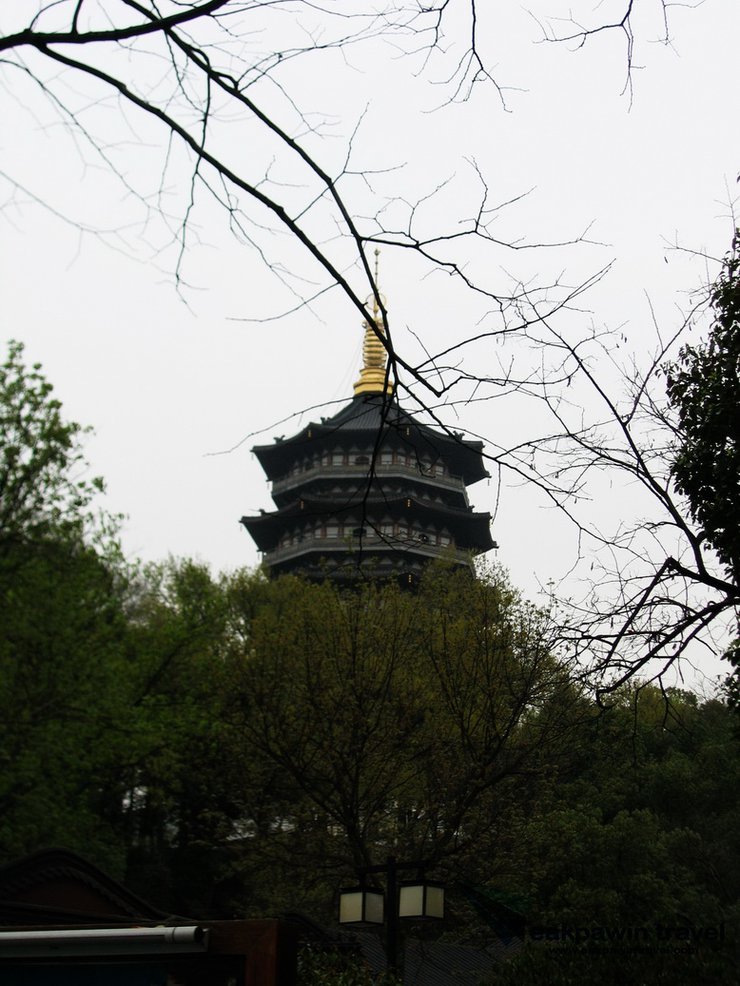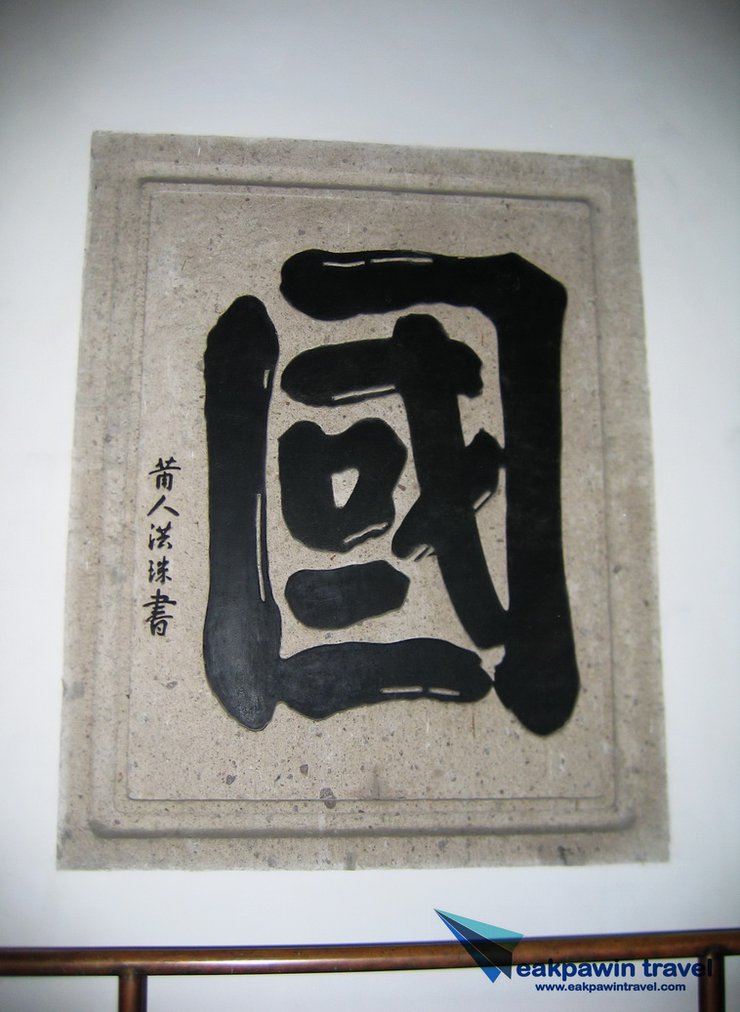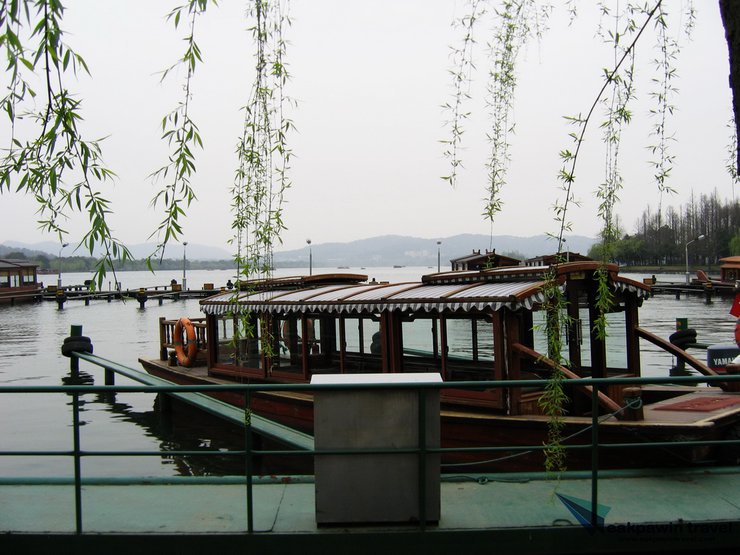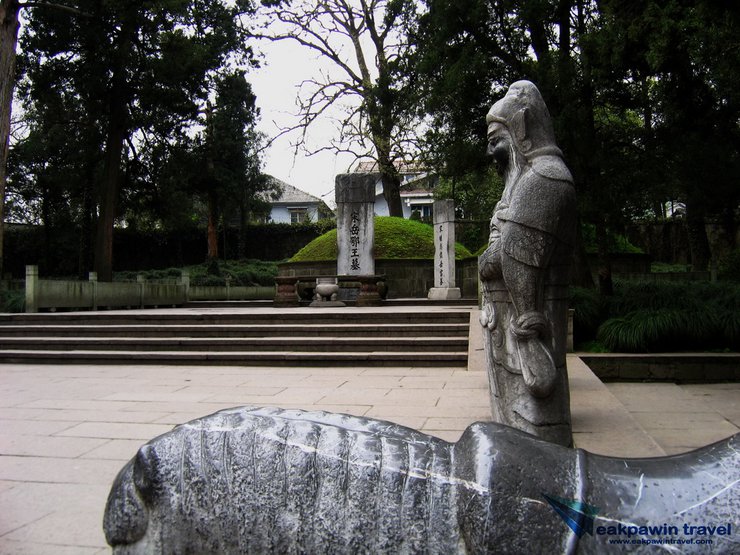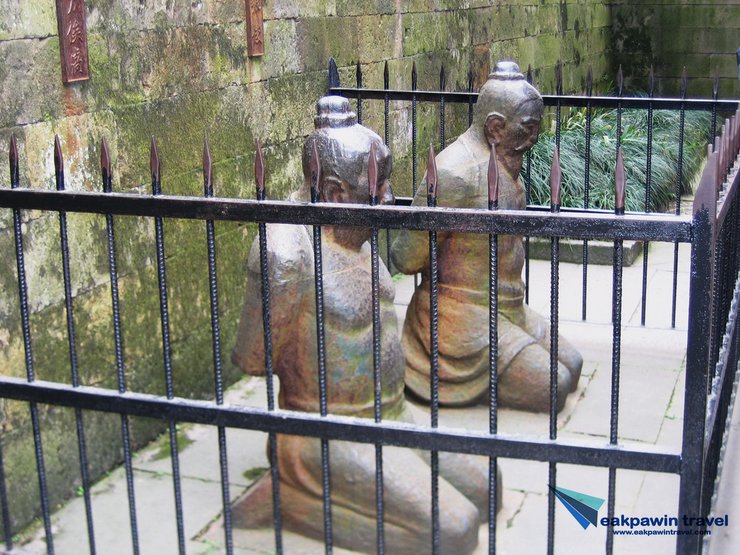The elderly man was busy cutting the dough into pieces, assembling them, and then tossing them into the pan of boiling oil. His wife, of the same age, was diligently brewing a bag of coffee. The clinking sound of a spoon against a clear glass informed the waiting customers that their coffee would be ready soon. Their daughter, who was already married, had set up a separate shop selling rice porridge. This could be considered a full-fledged family business.

I am currently enjoying a cup of coffee and some deep-fried dough sticks at my regular cafe near my office. It's not often that I have time to sit at the cafe before my 8:30 am start time. Usually, I grab something to eat and take it back to my desk. However, I just got back from a trip to Hangzhou last night, and this morning I need the caffeine from the coffee to help me tackle the work that's piled up on my desk. As I savor the crispy and delicious dough sticks, I watch the old man behind the counter tirelessly throwing the dough into the fryer, as if he has a bone to pick with someone. It suddenly reminds me of the origin of these treats in Hangzhou, the city I just left.
The legend of youtiao, a deep-fried dough stick, is rooted in hatred. During the Song dynasty, a loyal general named Yue Fei witnessed the devastation caused by the Jin army's invasion. Vowing to reclaim lost territories, Yue Fei dedicated his life to military service.


Before leaving home to become a soldier, his mother tattooed four characters on the middle of his back: "Love, Loyalty, Sacrifice for the Nation." However, the word "Nation" was not yet finished, missing one stroke, symbolizing the incomplete state of the nation at that time. Since joining the military, Ngak Hui has been determined, courageous, and has defeated numerous enemies. The commander-in-chief imparted his knowledge of warfare to him comprehensively. Upon the commander-in-chief's death, Ngak Hui succeeded him.
Ngak Hui's reputation for competence, discipline, and integrity resonated far and wide. His army maintained strict discipline, refraining from any form of harassment or extortion towards civilians. Even a single soldier requesting a hemp rope from a villager would be punished. Ngak Hui's equitable distribution of rewards among his troops fostered a strong and formidable army, renowned for its prowess in warfare and cherished by the populace.
Yue Fei's efforts to restore the Song Dynasty almost succeeded. His army repelled the invaders and recovered almost all lost territory. However, due to the envy of Qin Hui, the Grand Chancellor, the emperor recalled Yue Fei, claiming that his army would hinder peace negotiations. Upon Yue Fei's return to the capital, Qin Hui falsely accused him of various crimes, including plotting a rebellion to overthrow the throne. Ultimately, Yue Fei was executed.
In response to the incident, an enraged vendor of deep-fried goods molded dough into the shapes of Qin Hui and his wife, a co-conspirator, and then deep-fried them in hot oil, consuming them to quench his thirst for vengeance. Upon learning of this, other villagers joined in, fueled by their hatred, and consumed the deep-fried dough figures of the couple. As they continued to eat, they likely found the taste to be agreeable. Consequently, Youtiao has become a staple breakfast food in Hangzhou ever since.
Despite the historical association with Qin Hui and his wife, youyoubing (fried dough sticks) remain a popular breakfast item in China. However, concerns about their high fat content and the potential health risks associated with repeated use of cooking oil have led to debates about their nutritional value. While the temptation to indulge in a warm youyoubing with a cup of coffee or a bowl of porridge is undeniable, it is important to consider the potential health implications of regular consumption.
Contrary to popular belief, the "youtiao" we know today is not the original youtiao. The real youtiao was made with sugar, while the current version is actually "iwuyagway." In the past, these two snacks were sold together, and Thais often confused their names. Over time, "iwuyagway" became known as "youtiao," while the real youtiao disappeared. The "fake" youtiao became so popular that it eventually became the true youtiao in the hearts of Thais. It is now enjoyed plain, with coffee, with soy milk, in congee, in tau huay, dipped in custard, and more.

The tomb of Ngak Hui is located to the east of Sihu Lake. A Ngak Hui temple was built to honor him as one of the gods of honesty. At his tomb, I saw Chinese people burning incense and worshiping, and some even went closer to touch the tomb, to touch the soil that covered Ngak Hui's body.

"Saisi," the fish that sank into the water.
"Huang Zhaojin," a fallen phoenix.
"Diao Chan" is a character in the Chinese historical novel Romance of the Three Kingdoms. She is a beautiful and intelligent woman who is used by the warlord Dong Zhuo to sow discord between his adopted son, Lu Bu, and his foster father, Wang Yun. Diao Chan's beauty and cunning eventually lead to the deaths of both Dong Zhuo and Lu Bu.
"The hibiscus flower blushes like the beautiful Consort Yang."
Alas! Just hearing about them makes me yearn to see these four beautiful women in person. How beautiful are they that even schools of fish forget to swim and sink to the bottom of the sea? How beautiful are they that flocks of birds forget to fly and fall from the sky? How beautiful are they that even the moon, said to be beautiful, must hide away? And how beautiful are they that even the most beautiful flowers feel ashamed?
The Alluring Beauty of Xishi: A Weapon of Espionage and Sacrifice
Xishi's captivating beauty served as a covert weapon for the Yue state, which had fallen under the dominion of the Wu state. Dispatched as a concubine to the Wu King, Xishi's true mission was to act as a spy, relaying intelligence on the inner workings of the Wu court.
The Wu King, utterly captivated by Xishi's allure, neglected his duties, leading to the weakening of the Wu state. This vulnerability allowed the Yue army to launch a successful attack, liberating their homeland. Xishi's name, forever etched in history, embodies both captivating beauty and selfless sacrifice for her nation.

As I sailed across the West Lake, I saw no fish floating dead in the water, indicating that at that time, no one could compare in beauty to Xi Shi. However, even if someone were as beautiful as Xi Shi, the young scholar named Si Xian would not have cared, for he had already found love and given his heart to another beautiful woman from Hangzhou, Su Zhen.
At the lakeside of Sihu, Suzhen and Xiaoqing were enjoying the flowers around the lake, but soon the wind brought a heavy rain. They quickly ran to a boat to take shelter from the rain.
"I apologize, ladies, this boat has already been reserved," the boatman said.
"Let's get on the boat to avoid the rain, my sister and I," Xiao Qing pleaded.
"You may ask the gentleman yourself," the boatman replied.
Before any questions could be asked, the eyes of the young scholar and Suzhen met, sparking love at first sight on the small boat amidst the rain. Seeing their soaked clothes, the young scholar quickly opened his umbrella and welcomed them aboard. Those familiar with Chinese cinema will recognize this scene from the Legend of the White Snake, a timeless Chinese novel that has been adapted into numerous films and television series. I remember watching this film as a child at the local cinema. I pestered my father to take me because there were two Chinese films playing that night. Back then, double features would announce the titles of the films, and it was a rare occasion for my local cinema to have two. Unlike today's double features, where the titles are not announced, you could watch all day for the price of one ticket, with the films changing every five days. There were Western, Thai, Chinese, and Japanese films. No, I've never actually been to a double feature like that; I've just heard about them from others.
I don't remember much about watching "The White Snake" with my father. I only started to understand the story when it was remade, with Joey Wang as Suzhen and Maggie Cheung as Xiaoqing.
Suzhen, a white snake who has cultivated for over 1,000 years, and Xiaoqing, a green snake who has cultivated for 500 years, can transform into humans. They transformed from snakes into beautiful women and went sightseeing in the city.
Suzhen and Xu Xian, a young scholar, fell in love and married, living happily until they were discovered by Fahai, a powerful monk. Fahai believed that humans and demons should not be together, regardless of their love. He tricked Suzhen into revealing her true form as a snake, terrifying Xu Xian, who fled to a monastery. Unable to bear the separation, Xu Xian returned to Suzhen, enraging Fahai, who imprisoned Suzhen in a bowl beneath the Leifeng Pagoda on the shores of West Lake. Xiaoqing, Suzhen's sister, dedicated herself to mastering powerful magic to rescue her. After more than a decade, Xiaoqing destroyed the Leifeng Pagoda, freeing the White Snake, Suzhen.

The Leifeng Pagoda: A Symbol of Love and Loss
The Leifeng Pagoda, originally built in the 10th century, tragically collapsed in 1924. While the exact cause remains uncertain, some speculate it was due to age, while others believe it was the result of Xiaoqing's return to aid her sister.
Despite its destruction, the Leifeng Pagoda was rebuilt in the 20th century, standing once again on the shores of West Lake. This octagonal, five-story structure remains a prominent landmark, though its reconstruction sparked controversy. Some argued against rebuilding, viewing it as a betrayal of the White Snake, whose love transcended her monstrous form. They saw the original pagoda as a symbol of her confinement.
The Leifeng Pagoda's story continues to resonate, embodying themes of love, sacrifice, and the enduring power of legend.

The Many Interpretations of the White Snake Legend
The legend of the White Snake has been interpreted in various ways throughout history. Some interpretations emphasize the strength of women, while others debate whether the White Snake, Suzhen, with her true love for the monk, Fahai, or Fahai himself, is more deserving of right or wrong. There are even interpretations that see Suzhen as a representative of the common people who are oppressed and exploited by Fahai, who represents the ruling class.
Hangzhou: A Cultural and Scenic Gem
Despite its modern development, Hangzhou retains a rich cultural heritage, evident in legends like the beautiful Xi Shi and the White Snake, and historical figures like Yue Fei, whose biography inspired the creation of deep-fried dough sticks (youtiao). These cultural treasures, combined with the breathtaking scenery and clean environment of West Lake, adorned with diverse flora, will undoubtedly solidify Hangzhou's position as a prominent tourist destination in China for years to come.
As I finished the last sip of coffee from the bottom of the cup, along with the final piece of youtiao, it was time to head to work. I didn't forget to turn to order a large bag of youtiao from the shop owner, Uncle A-Pae, to share with my colleagues at work.
These scallion pancakes are a gift from me, a souvenir from Hangzhou.
eakpawintravel
Friday, September 27, 2024 10:41 AM




